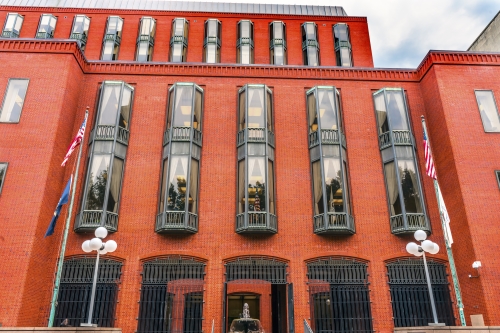A Cautionary Tale of Contempt Proceedings for Potential Violation of a Standard Protective Order in Trade Secrets Litigation | Dorsey & Whitney LLP
Though litigants routinely enter into stipulated protective orders in the course of discovery that may involve sensitive company information (or even trade secrets), a recent ruling is a cautionary tale on the potential consequences of failing to abide by a protective order.
In Allstate Ins. Co. v. Cruz, Allstate filed suit against Cruz, a former Allstate agent, alleging he breached his exclusive agency agreement and appropriated customers to start his own insurance agency in violation of the federal Defend Trade Secrets Act, and the Colorado Uniform Trade Secrets Act. The district court granted Allstate summary judgment on Cruz’s counterclaims, and before trial on Allstate’s remaining claims, the parties dismissed the action.
Less than a month later, Allstate filed a Motion to Reopen and for Order to Show Cause and Enjoin, seeking to initiate contempt proceedings against Cruz for violating the parties’ stipulated protective order. Allstate claimed that Cruz published seven deposition transcripts designated as “Confidential” on websites linking Allstate to criminal activity by selling customers’ personal information.
The court granted Allstate’s Motion in part, permitting further proceedings to determine whether Cruz should be held in contempt for disclosing Allstate’s designated confidential information. Though Cruz “allude[d] to the fact that many of the documents at issue are publicly available on” the court’s docket, the court noted that the protective order specified that “[i]n the event Confidential Information is used in any court filing or proceeding in this action, it shall not lose its Confidential status as between the parties through such use.” The court ordered Cruz to show cause by May 15, 2024, why he should not be held in contempt.
Litigants may enter into protective orders where, as in Allstate, discovery may implicate confidential, proprietary, or private information. This includes trade secrets litigation where parties need assurance that a trade secret will not become public simply because it becomes the subject of litigation. Otherwise, the trade secret would ordinarily lose its value (and trade secret protection) because of such public disclosure. A standard protective order explains that discovery may require production of materials warranting special protection from public disclosure and using the materials for purposes other than the instant litigation.
Various state and federal courts offer model protective orders that outline the process for designating materials as confidential and challenging another party’s confidentiality designations. The Northern District of California has a “Model Protective Order for Litigation Involving Patents, Highly Sensitive Confidential Information and/or Trade Secrets.” This order enables parties to designate documents as not just confidential but “HIGHLY CONFIDENTIAL – ATTORNEYS’ EYES ONLY,” and even includes specific protections and procedures for source code review in litigation. Other federal courts with model protective orders include the Northern and Southern Districts of Texas, the Western District of Washington, and the District of Oregon, among others.
Though protective orders may be part and parcel of business and IP litigation, parties should not take them lightly. The reopening ruling in Allstate is just one illustration of the consequences of violating a protective order. Courts have found violations of protective orders even when the disclosure of confidential materials was not to the public but a more limited audience.
For example, in SIMO Holdings Inc. v. Hong Kong uCloudlink Network Tech. Ltd., a patent infringement action in the Southern District of New York, the court found that plaintiff SIMO violated the parties’ protective order by sharing defendant uCloudlink’s confidential documents with attorneys SIMO had retained to represent a non-party in separate Chinese patent litigation. No. 18-cv-5427 (S.D.N.Y. Dec. 7, 2020).
As to attorneys, SIMO and uCloudlink’s protective order prohibited disclosure of confidential material except to “counsel retained specifically for this action,” and “retained by a party to serve as an expert witness or otherwise provide specialized advice to counsel in connection with this action.” The court found that SIMO disclosed uCloudlink’s confidential material from the S.D.N.Y. patent litigation to attorneys who were not “retained specifically for [the instant] action,” in “clear” violation of the protective order. The court imposed $40,000 in sanctions on SIMO for violating the protective order, (i.e., $10,000 for each of the four documents wrongly disclosed).
Another example occurred in Hsin Lin v. Solta Medical, Inc., where defendant Solta filed a motion to retain confidentiality of documents disclosed in violation of the parties’ protective order. Plaintiff’s counsel in this Northern District of California action provided Solta’s confidential documents to plaintiff’s counsel in foreign litigation, who then provided the confidential documents to the foreign district court. The court reiterated that plaintiff failed to follow the order’s procedures for producing confidential materials when compelled in another litigation and following an unauthorized disclosure of protected material. The court also noted that the protective order prohibited “[m]ass, indiscriminate, or routinized designations,” so Solta, too, violated the protective order by designating every document it produced as confidential.
The court granted Solta’s motion to retain confidentiality of its documents, as they “showed ongoing business processes, procedures, and strategies by showing how Solta investigates and assesses potential product failures,” including for products currently on the market. Solta also explained that it “closely guarded” these documents internally, and exposing these documents publicly would give competitors insight into its internal processes. The court found that particularized harm would result from disclosure to the public and granted Solta’s motion. No. 21-cv-05062-PJH, 2024 U.S. Dist. LEXIS 66863 (N.D. Cal. Apr. 11, 2024).
These rulings, including the forthcoming show cause decision in Allstate, are a reminder to read and adhere to all of the terms of a protective order, including the parameters on disclosing confidential materials. We will be monitoring the court’s contempt proceedings in Allstate. Stay tuned for further updates.






